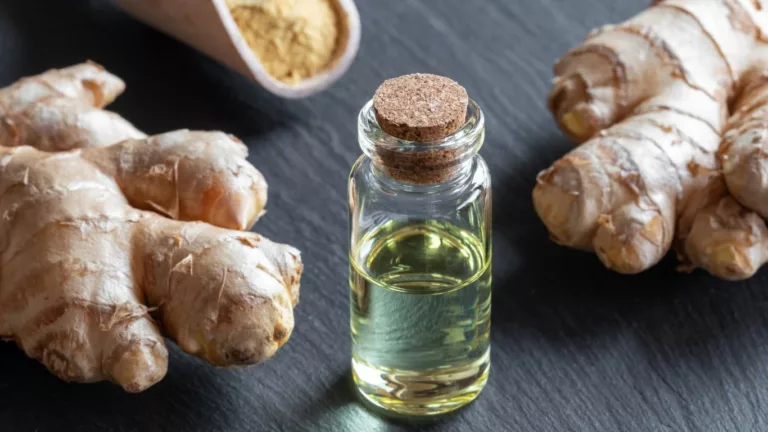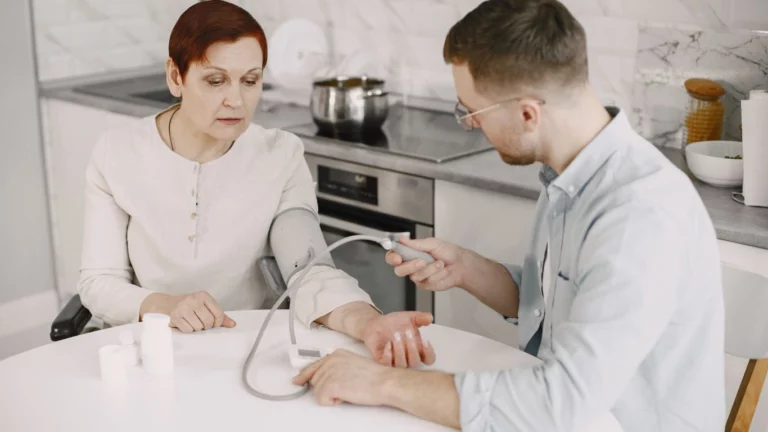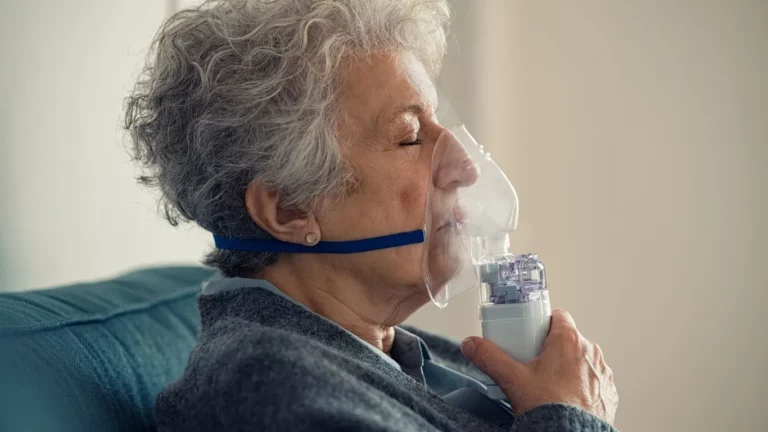Best Bedtime Drink for GERD: Soothe Your Stomach for Better Sleep
As someone who’s worked as a Medical Assistant in a Gastroenterology Clinic for a while, I can tell you that dealing with GERD (Gastroesophageal Reflux Disease) is no walk in the park. Between the burning sensation in your chest, the difficulty swallowing, and the constant discomfort, it’s a condition that can really take a toll on your daily life. But here’s something I’ve noticed over the years while assisting patients and even from my own experience—making small changes in your routine can make a big difference. One of the simplest adjustments? Choosing the best bedtime drink for GERD. Trust me, it’s more important than you might think!
The Link Between GERD and Your Bedtime Drink
When it comes to managing GERD, your diet and lifestyle play a significant role in controlling symptoms. One of the most common triggers of acid reflux is the food or drink you consume before bed. For many people, GERD symptoms are at their worst during the night, leading to disturbed sleep and an even worse morning. The acidity from certain drinks can irritate your esophagus, making it harder for your body to relax and heal. So, what can you do to ease that nighttime discomfort?

Finding the right bedtime drink isn’t just about quenching your thirst—it’s about supporting your body’s natural healing process. By choosing soothing, non-acidic, and anti-inflammatory drinks, you can reduce the chances of reflux, improve your digestion, and set yourself up for a more restful night. Let’s dive into some drinks that are perfect for anyone struggling with GERD.
Why Some Drinks Make GERD Worse
Before we talk about the best drinks for GERD, let’s first understand why certain drinks should be avoided. As you may already know, GERD is caused when stomach acid flows backward into the esophagus. This backward flow (or acid reflux) happens when the lower esophageal sphincter (LES), a muscle that keeps the stomach’s contents from going up into the esophagus, doesn’t function properly.
Some drinks, especially acidic ones, can relax the LES even more, increasing the likelihood of acid reflux. Here are a few drinks that can worsen GERD symptoms:
- Coffee: The caffeine in coffee can relax the LES, leading to more frequent acid reflux.
- Citrus juices: Orange juice, lemon juice, and other citrus-based drinks are highly acidic, which can irritate the esophagus.
- Alcohol: Alcohol can also relax the LES, making it easier for stomach acid to rise up into the esophagus.
- Carbonated drinks: Soda and sparkling water can cause bloating and increase pressure on the LES, leading to reflux.
So, what’s left? Well, there are actually several drinks that can help soothe GERD symptoms and even promote better sleep.
Best Bedtime Drink for GERD: Herbal Teas

If you’re looking for a natural, calming way to settle your stomach and prepare for bed, herbal teas are your best bet. There are several herbs that have been shown to support digestion and relieve the symptoms of GERD. Some of my go-to recommendations for herbal teas include:
- Ginger Tea: Ginger is known for its anti-inflammatory properties and its ability to help with nausea and digestive discomfort. It can help soothe your stomach and promote digestion, which is crucial when you’re dealing with acid reflux. A cup of warm ginger tea before bed can do wonders for calming your digestive system.
- Chamomile Tea: Chamomile is a natural relaxant, and it’s not just good for helping you unwind after a long day. It’s also been shown to reduce inflammation in the digestive tract and can help with overall digestive health. If you’re looking for a tea that can promote both relaxation and digestion, chamomile is a great option.
- Licorice Root Tea: Licorice root has been traditionally used to treat digestive issues, and it can help protect the mucous lining of the esophagus. Just be cautious with licorice if you have high blood pressure, as it can sometimes cause an increase in blood pressure.
These teas are not only gentle on your stomach, but they can also promote a sense of calm and relaxation, making it easier to drift off to sleep without worrying about reflux or discomfort.
The Power of Warm Milk
Another classic bedtime drink that has long been recommended for GERD sufferers is warm milk. There’s something about a warm glass of milk that feels comforting, right? But beyond the comfort, warm milk can actually help coat your stomach and soothe irritation from acid reflux.
Milk is alkaline, which can help neutralize stomach acid. Plus, the tryptophan in milk promotes sleep, so it’s a win-win if you’re looking to improve your sleep quality while managing GERD symptoms. However, if you’re lactose intolerant, you’ll want to opt for lactose-free milk or a plant-based alternative like almond milk, which is also less likely to irritate your stomach.
Other Drinks to Try for GERD Relief
While herbal teas and warm milk are the most common recommendations, there are a few other drinks that can be soothing for GERD:
- Aloe Vera Juice: Aloe vera is well-known for its soothing properties, and it can be very helpful for calming the digestive tract. Just make sure to opt for a product that’s specifically labeled as safe for internal use.
- Coconut Water: Coconut water is naturally alkaline and can help balance the acidity in your stomach. It’s a great hydrating option that won’t irritate your stomach.
- Banana Smoothie: A simple banana smoothie made with almond milk or another GERD-friendly base can be a great bedtime drink. Bananas are naturally soothing and can help coat the stomach lining.
When you’re dealing with GERD, it’s all about choosing drinks that don’t aggravate the condition but instead help to soothe and heal your digestive system. It might take some trial and error to find the best bedtime drink for you, but incorporating some of these options into your evening routine could make a big difference in how you feel at night and the quality of your sleep.
Creating a GERD-Friendly Bedtime Routine
As I’ve mentioned before, it’s not just about the drink you choose, but how you integrate it into a healthy bedtime routine. Over the years, I’ve observed firsthand how the combination of what you drink and when you drink it can make a huge difference in how well you manage GERD symptoms. As a Medical Assistant, I’ve worked with patients who’ve found that making small adjustments to their nightly habits can help them get through the night without the discomfort of reflux or waking up with a sour taste in their mouth. Let’s dive into some tips for creating the ultimate GERD-friendly bedtime routine.

The Timing of Your Bedtime Drink
It’s not only the type of drink that matters when managing GERD, but also the timing of when you consume it. From my personal experience, I’ve found that sipping on any beverage too close to bedtime can backfire. This is because liquids can increase the volume in your stomach, putting pressure on the lower esophageal sphincter (LES) and leading to reflux.
The general rule of thumb is to avoid drinking anything at least 30-45 minutes before heading to bed. This gives your body enough time to process the liquids and reduces the risk of that uncomfortable reflux while you sleep. But there’s a catch: don’t go to bed dehydrated! Hydration is important for overall digestive health, so make sure you get your water intake earlier in the day.
Also, if you’re opting for one of those soothing bedtime drinks (like a warm cup of chamomile tea or almond milk), try drinking it while you’re winding down. That way, your body is already in a more relaxed state, and the drink can have the intended effect of helping you sleep soundly through the night.
Other Lifestyle Habits That Can Complement Your Drink Choices
It’s not just about what you drink or when you drink it. There are other lifestyle habits that can have a big impact on how your body responds to GERD. From my work in the clinic, I’ve seen how small changes in daily habits can help reduce GERD symptoms significantly. Here are a few things to keep in mind:
- Sleep Position Matters: Did you know that your sleep position can affect GERD symptoms? Try to sleep with your head elevated, either by using a wedge pillow or raising the head of your bed. This position helps prevent stomach acid from flowing up into your esophagus.
- Stay Relaxed Before Bed: Stress is another common trigger for acid reflux. If you’re stressed, it’s more likely that your stomach will produce excess acid. So, take some time before bed to relax. Whether it’s reading a book, doing some gentle stretching, or practicing deep breathing, a relaxed mind and body can help prevent nighttime reflux.
- Avoid Heavy Meals: I’ve often seen patients struggle with GERD because of heavy meals right before bed. Eating a large meal late in the evening can overwhelm your digestive system and increase your chances of reflux. Instead, try to keep your dinner light and well-balanced, giving your body plenty of time to digest before you lie down.
Drinks to Avoid Right Before Bed for GERD Sufferers

Just as important as knowing which drinks to choose is knowing which drinks to avoid. The wrong beverage before bed can exacerbate GERD symptoms and make your night a whole lot worse. Trust me, I’ve seen it firsthand with many patients who didn’t realize how their choice of nightcap was affecting them. So let’s look at the drinks you should steer clear of, especially if you have GERD.
- Carbonated Beverages: Whether it’s soda, sparkling water, or beer, carbonated drinks are a definite no-go before bed. The carbonation causes bloating and increases pressure in your stomach, which can lead to reflux.
- Alcohol: While a glass of wine or a cocktail may seem relaxing, alcohol actually relaxes the LES, which increases the likelihood of acid reflux. If you’re struggling with GERD, I’d recommend cutting back on alcohol, especially in the hours leading up to bedtime.
- Fruit Juices: Juices, especially citrus ones, are highly acidic and can irritate the esophagus. Even juices like apple or pineapple can be problematic for some GERD sufferers. If you’re craving a fruit-flavored drink, opt for a non-acidic fruit smoothie instead.
- Caffeinated Beverages: Coffee isn’t the only drink with caffeine that can cause problems. Tea, cola, and even certain energy drinks can relax the LES and increase stomach acid production, making them a poor choice for GERD sufferers at night.
Alternative Drinks That Promote Restful Sleep with GERD
If you’re on the lookout for a bedtime drink that will not only soothe your GERD but also help you sleep, you’re in luck! There are some fantastic alternatives that combine the best of both worlds: reducing acid reflux and promoting a restful night’s sleep.

- Almond Milk: Almond milk is a great dairy-free option that’s gentle on the stomach. It’s also naturally alkaline, which can help neutralize stomach acid. A glass of warm almond milk before bed can help soothe your stomach and encourage better sleep without irritating your digestive system.
- Warm Coconut Water: If you haven’t tried coconut water as a bedtime drink yet, it’s definitely worth considering. It’s naturally alkaline and can help balance stomach acid, plus it’s rich in electrolytes, keeping you hydrated without irritating your esophagus.
- Herbal Sleep Blends: Many herbal tea blends are designed specifically to help with sleep and digestion. Look for options that combine calming herbs like valerian root, lemon balm, and passionflower. These herbs not only help you wind down but also support healthy digestion, which is perfect if you’re struggling with GERD.
It’s about finding the right balance—something that will help you manage your GERD while ensuring you get a good night’s sleep. With a little trial and error, you’ll figure out the perfect combination of drinks and habits that work best for you. It’s all about trial and error, and most importantly, listening to your body!
How Long Does It Take for a Bedtime Drink to Work for GERD?
Now that we’ve covered the best bedtime drinks and how to create a GERD-friendly routine, you might be wondering: how long will it take before you start noticing results? From my personal experience in the Gastroenterology Clinic, I’ve seen a variety of responses depending on the individual. Some people feel immediate relief after incorporating a soothing drink into their nightly routine, while others might take a few days or even weeks to notice the benefits. It’s all about consistency and finding what works best for your body.

One thing to keep in mind is that these drinks alone might not be a magical cure. They work best when paired with other lifestyle changes such as adjusting your eating habits, managing stress, and sticking to a consistent sleep schedule. It’s important to remain patient, as GERD relief often takes time. However, after a few days of having a calming bedtime drink and following the tips mentioned, you should start feeling the difference.
How to Track Your Progress
To really gauge how well your new routine is working, it’s a good idea to keep a simple journal or log. I’ve recommended this to many patients, and it’s something that can really help you track patterns and identify what’s working (and what’s not). Here’s what you could track:
- Bedtime Drink: Note down what drink you had and how much of it. Was it warm almond milk? Ginger tea? Keeping a record will help you spot what works best for your GERD symptoms.
- Sleep Quality: How did you sleep that night? Did you wake up with heartburn or did you sleep through the night without disruptions? Tracking your sleep quality can help you see the connection between your drink and your reflux.
- GERD Symptoms: Did you experience less heartburn, bloating, or regurgitation? Record any improvements in your symptoms or note if there’s been a change.
Keeping track for a week or two will give you a better idea of whether your bedtime drink routine is making a positive impact. And remember, even if it takes time, you’re moving in the right direction by focusing on gentle, GERD-friendly habits.
When to Seek Medical Advice for GERD
While adjusting your diet and bedtime routine can make a huge difference, there are times when GERD symptoms require medical intervention. In my experience, many people think they can manage GERD with lifestyle changes alone, and for some, this works well. However, there are instances where medical advice is necessary. Here’s when you should consider reaching out to your healthcare provider:
- Frequent or Severe Symptoms: If you experience GERD symptoms like heartburn, regurgitation, or difficulty swallowing more than twice a week, it may be time to talk to your doctor. Chronic GERD can lead to complications like esophageal damage or even cancer in some cases.
- Over-the-Counter Antacids Aren’t Working: If you’ve been relying on over-the-counter antacids for relief but aren’t finding much improvement, your doctor may recommend a stronger treatment or a prescription medication.
- Difficulty Sleeping: If GERD symptoms are keeping you up at night or disrupting your sleep regularly, it could significantly impact your quality of life. A healthcare professional can help identify additional treatments to address the underlying cause of your reflux.
If any of these apply to you, it’s worth scheduling a visit with your doctor. They may recommend further testing or more tailored treatment options, such as prescription medication, lifestyle changes, or even surgery in rare cases. Always trust your body and seek help when needed.
Additional Resources for GERD Management
For more information on managing GERD, there are several credible resources that can help you stay informed and take the right steps to find relief. I always encourage my patients to learn more about the condition so they can make empowered decisions. Here are some great places to start:
- Health.com: GERD Overview
- National Institutes of Health (NIH)
- American Gastroenterological Association
These organizations offer reliable, evidence-based information on GERD and can help you stay up to date on the latest treatment options, research, and lifestyle tips. It’s always important to lean on trusted, expert-backed resources to guide you through managing GERD effectively.
Disclaimer
While this article provides general tips for managing GERD, it’s essential to remember that everyone’s experience with GERD is unique. The information shared here is based on my professional experience and personal insights as a Medical Assistant in a Gastroenterology Clinic. However, it should not be taken as medical advice. Always consult your healthcare provider before making any significant changes to your diet or lifestyle, especially if you have underlying medical conditions or are taking prescription medications.
GERD can be a challenging condition, but with the right approach, you can manage your symptoms and improve your quality of life. By making simple adjustments to your bedtime routine, choosing the best bedtime drinks, and staying informed, you’re on the right track to feeling better. Take it one step at a time, and remember that you’re not alone in this journey!

Camellia Wulansari is a dedicated Medical Assistant at a local clinic and a passionate health writer at Healthusias.com. With years of hands-on experience in patient care and a deep interest in preventive medicine, she bridges the gap between clinical knowledge and accessible health information. Camellia specializes in writing about digestive health, chronic conditions like GERD and hypertension, respiratory issues, and autoimmune diseases, aiming to empower readers with practical, easy-to-understand insights. When she’s not assisting patients or writing, you’ll find her enjoying quiet mornings with coffee and a medical journal in hand—or jamming to her favorite metal band, Lamb of God.







